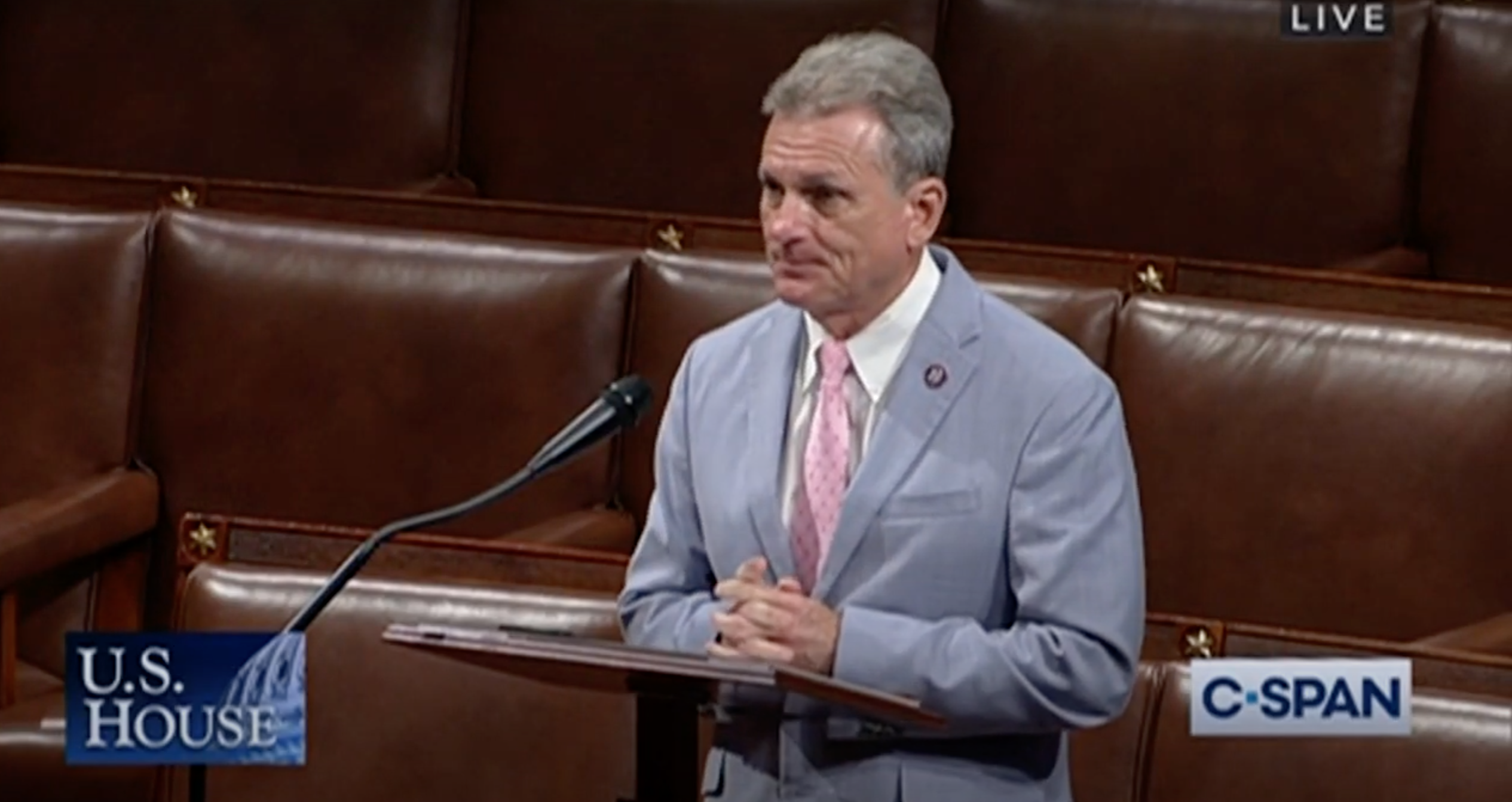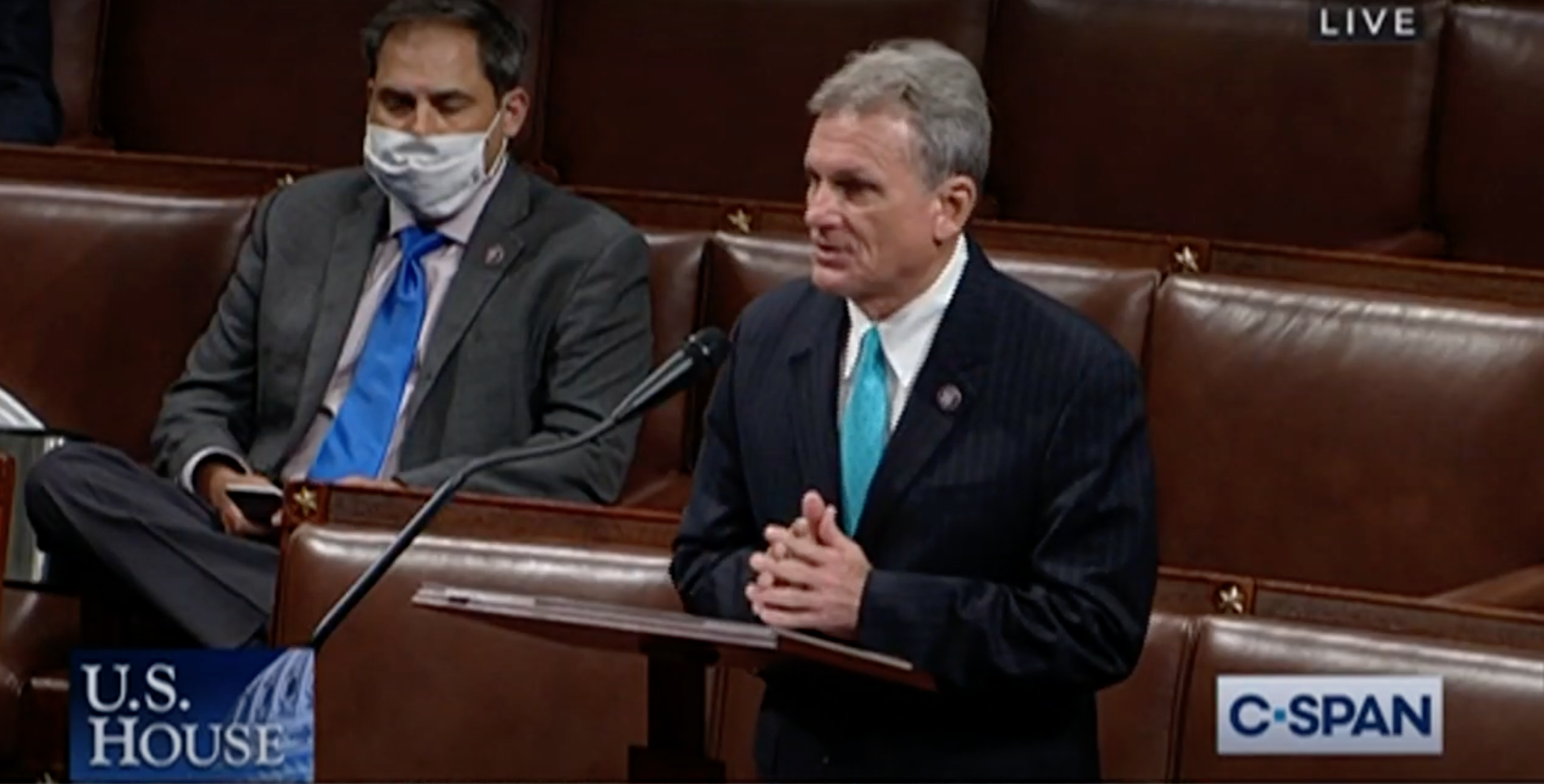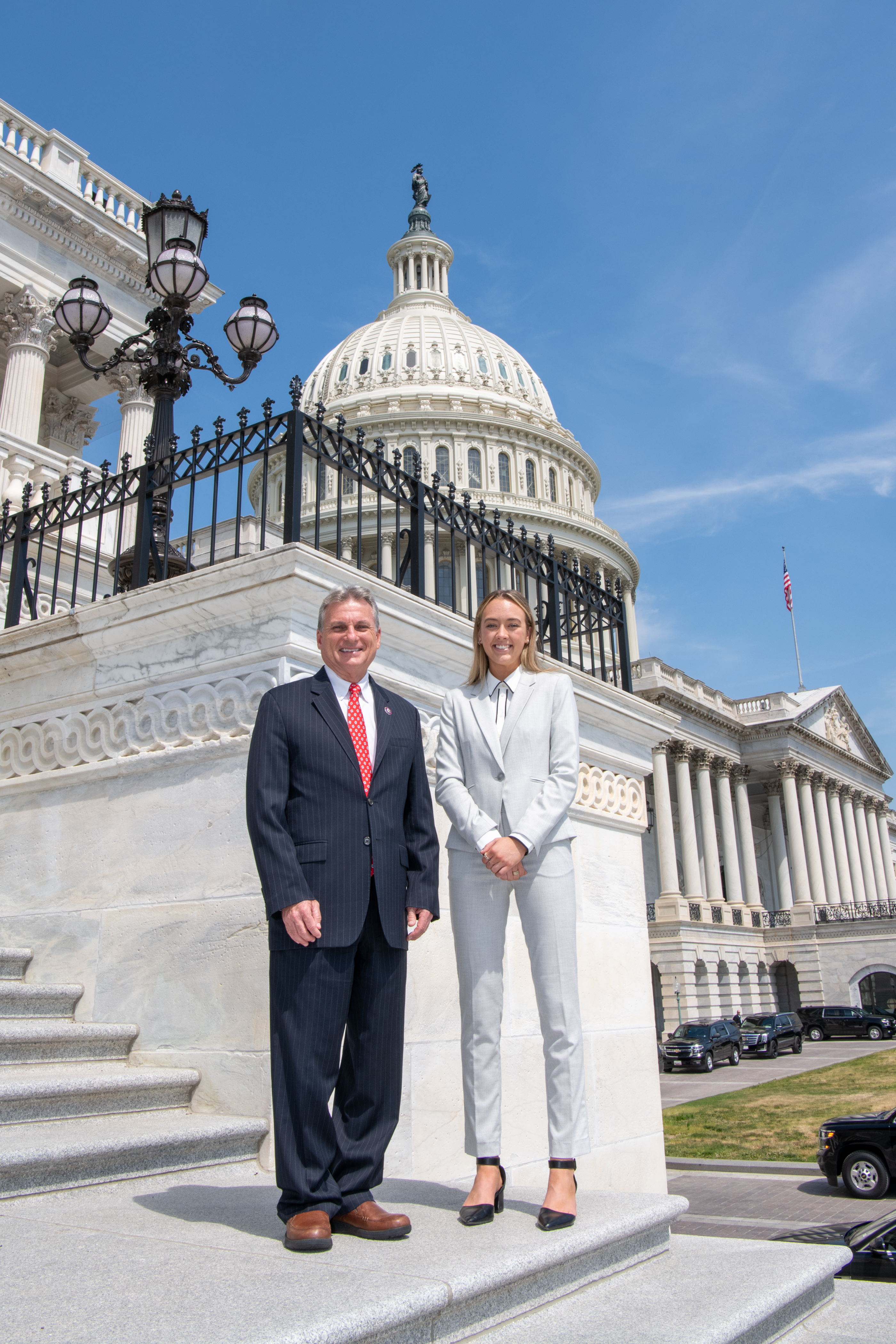|
|
|
|
This week Representative Vern Buchanan and I led a letter to President Biden expressing our serious concerns with the Administration's support for waiving intellectual property (IP) protections related to the COVID-19 vaccines. We were joined by more than 100 Republican members in the House.
Waiving the IP protections for the COVID-19 vaccines will be a disaster. The insane move from the Biden Administration not only counters our patent system, it will stifle the innovation of lifesaving drugs and cures by removing the incentives for investment. It is also a gift to China who has spent decades trying to steal American innovation, and who spent all last year trying to steal COVID-19 vaccine IP. We cannot allow this to happen.
Click here to view our letter.
We write to you today to express our profound concern with the Administration’s support for waiving intellectual property (IP) protections related to COVID-19 vaccines under the World Trade Organization’s (WTO) Agreement on Trade-Related Aspects of Intellectual Property Rights (TRIP). We remain committed to working together to address the global needs of vaccine distribution, but this proposed waiver will not help us meet that goal. Intellectual Property (IP) protections have fostered life-saving biomedical innovation, strengthened the U.S. economy, created millions of good paying jobs, and made our country the world leader in the development of cutting-edge diagnostics, treatments, and cures. We firmly believe that waiving these IP protections will prove to be disastrous and counterproductive in our fight against this global pandemic and urge you in the strongest possible terms to rescind your support for this policy.
The real challenges in fighting the pandemic include tackling major logistical, manufacturing, and health care delivery hurdles. Weakening IP rules will not solve any of these challenges. The United States Trade Representative’s (USTR) announcement is deeply disappointing and will do nothing to accelerate the global distribution of COVID-19 vaccines. Quite the contrary, waiving the IP protections would only serve to undermine innovation and make it even more difficult for industry to respond to both the current pandemic and future health emergencies. Moreover, if implemented, the proposal could have the opposite effect, by reducing the availability of critical raw materials necessary to manufacture these vaccines. Recently, Germany’s Chancellor Angela Merkel rejected the notion of waiving global IP protection because of the additional hurdles it would cause in the manufacture of these vaccines. Chancellor’s Merkel’s opposition underscores the dangers of this policy.
Rather than taking the extraordinary step of waiving IP rights, the Administration should instead focus on addressing the actual reasons behind the global unavailability of COVID-19 vaccines. Instead of spending time on negotiations with the WTO that prolong the worldwide pandemic response, we should work to ship stockpiled vaccines to those countries whose regulatory authorities have approved them. We should also seek to expand the domestic production of vaccines to ensure a secure supply chain, create American jobs, and increase the supply abroad. Manufacturers have already worked diligently to scale up their capacity and taken the unprecedented step of entering into agreements with their competitors to increase vaccine supply. While the Administration pushes these waivers, vaccine manufacturers have been diligently working with other countries to address their vaccine needs.
Importantly, the proposal also threatens American jobs and undermines the long-term competitiveness of our biopharmaceutical industry by allowing countries like China to profit from our innovation. The Chinese government, as part of its Made in China 2025 Plan, is intent on expanding its domestic production of biomedical products, largely through theft of American technology and innovation. Indeed, according to both the Federal Bureau of Investigation and the Department of Homeland Security, the Chinese government has been engaged in a sophisticated and wide-ranging effort to steal American COVID-19 vaccine research – particularly mRNA technology, an area in which China is lagging far behind. And yet, even as the FBI and DHS investigate and express concerns about China’s action to acquire this information and technology, USTR has proposed voluntarily gifting it to China.
The two FDA-authorized vaccines that utilize new mRNA technology were the result of decades of work and billions of dollars in research and development. Under your proposal, however, China and its allies would now have access to this technology and benefit from private and American taxpayer investment. It would allow them to create an entire industry designed to compete with American companies and further limit our national and supply chain biomedical security. The result would be a disastrous loss of American jobs, less investment in domestic research and development, and increased reliance on foreign supply chains.
Not only would the waiver of IP rights set a terrible precedent and disincentivize companies from further investment in such research, but it would also do very little to increase the global manufacture of COVID-19 vaccines. These vaccines require highly sophisticated manufacturing facilities with specialized equipment and trained employees. It would take months – if not years for these countries to construct fully operational manufacturing facilities. Afterwards, we would be faced with the prospect of having a large supply of complex vaccines being produced and distributed worldwide by unqualified manufacturers with little or no regulatory oversight. Additionally, it is very likely that these foreign countries would also utilize the knowledge they gained from our COVID-19 vaccines to make other, unrelated medical products designed to compete directly with the U.S.
In your recent speech to Congress, you promised to protect American jobs and bring foreign manufacturing back to the U.S. This proposal runs directly counter to those promises and, in fact, disincentivizes the kind of American ingenuity that brought us these lifesaving COVID-19 vaccines in record time. It is absolutely critical that any agreement with the WTO does not threaten U.S. jobs and innovation or benefit America’s competitors.
We strongly urge you to work with Congress, industry and other governments to rapidly and responsibly increase the supply and distribution of COVID-19 vaccines worldwide and rescind this harmful and misguided proposal. It is imperative that we lead the world in increasing global access to COVID-19 vaccines while also affirming our nation’s long and storied history of protecting IP to spur innovation. American jobs, innovation, and the health and welfare of the entire world are at stake. We look forward to your prompt response. |
| this week on buddy's briefing |
|
|
This week on Buddy's Briefing we discuss serious concerns with the Biden Administration's support for waiving IP protections for COVID-19 vaccines, the vote on Speaker Pelosi's January 6 commission, standing with Israel, and more.
|
| from our nation's capitol CCCXIII |
|
|
Monday, May 17, 2021: Once I’m back at the Capitol this afternoon, I head straight to the Congressional Visitors Center (CVC) for our weekly Whip Team meeting where we discuss this week’s agenda.

Buddy pays tribute to Gordon Varnedoe |
Next, I head to the House Chamber for our first vote series of the week and afterwards, I remain on the flood and pay tribute to my good friend, Gordon Varnedoe – aka “Batman” - of Savannah, who passed recently. A link to my emotional tribute can be found here.
Wednesday, May 19, 2021: This morning I have an interview with the Wall Street Journal to discuss my letter to the Biden Administration regarding their proposed COVID-19 vaccine intellectual property (IP) release to China. More details on the letter can be found in this newsletter preceding this column. Later, I have a virtual interview with PBS NewsHour to discuss the partisan divide that grips Washington these days and the potential for bipartisan work in this Congress. A link to my interview can be found here. Afterwards, I have a virtual call with Georgia members of the American Academy of Family Physicians to discuss some of the health care issues facing our community, including expanding and ensuring access to telehealth and ensuring access to health care through Medicaid payment parity and high-deductible health plan primary care visits. Next, I have a virtual call with members of the American Public Transportation Association (APTA) to discuss how an infrastructure bill and surface transportation reauthorization would help our communities meet growing mobility demands. Next, I head to a meeting with the Chairman of SK Innovation, Chey Tae-won, to discuss their exciting project in Northeast Georgia that will bring more than 2,600 jobs to the area.

Buddy pays tribute to Dr. Don Harp |
Once back in my office, I have an interview with Newsmax to discuss a number of issues, including the situation in Israel, origin of the COVID-19 virus and legislation creating a commission to look into the January 6th breech of the Capitol. A link to my interview can be found here. Next, I head to the House Chamber for our first and only vote series of the day and afterwards, remain in the Chamber where I pay tribute to Dr. Don Harp, who recently passed. Dr. Harp was a retired Methodist Minister, graduate of Young Harris College (YHC) and a fellow member of the Board of Trustees of YHC. A link to my tribute can be found here.
Thursday, May 20, 2021: My day starts with a meeting of the Doctor’s Caucus where we hear from Vital Transformation, a consultancy firm focused on addressing the dynamic challenges of today’s health care system, as we discuss the Democrats' proposed prescription drug pricing bill, H.R. 3. This is a partisan bill that will adopt international reference pricing and not only limit the number of existing medications available to patients here in America but also threaten future research and development (R&D) by pharmaceutical manufacturers leading to fewer innovative medications being brought to market. Afterwards, I head to the House Chamber where I pay tribute to my good friend, Hank Huckabee, who passed recently. Hank was another Young Harris College graduate who served with us on the Board of Trustees of YHC. Hank and I served in the Georgia State Legislature together and later he served as Chancellor of the University System of Georgia. A link to my tribute can be found here.

Buddy with Lauren Holly |
Next, I head to an Energy and Commerce (E&C) member meeting where we hear from the subcommittee chairs and discuss the upcoming agenda for each subcommittee. Afterwards, I have a Select Committee on Climate Change committee meeting where we discuss potential investments to modernize and expand the electric grid. Next, I head to the House Chamber for our final vote series of the week and afterwards head to the Capitol Plaza where I have a picture taken with Lauren Holly, our intern for the past several weeks who is leaving for a job in the Senate. Once back in my office, I have a phone interview with the Atlanta Journal Constitution to discuss the proposed infrastructure bills in advance of Transportation Secretary Pete Buttigieg’s visit to Atlanta tomorrow. After filming this week’s edition of Buddy’s Briefing in my office, I have a virtual call with Georgia members of the Navy League of the U.S. Atlanta Metropolitan Council for an update on the priority requirements of the Navy, Marine Corps, Coast Guard and Merchant Marines. |
| VOTES IN THE HOUSE THIS WEEK |
|
|
| Click here for this week's vote sheet in the House. |
|
|

